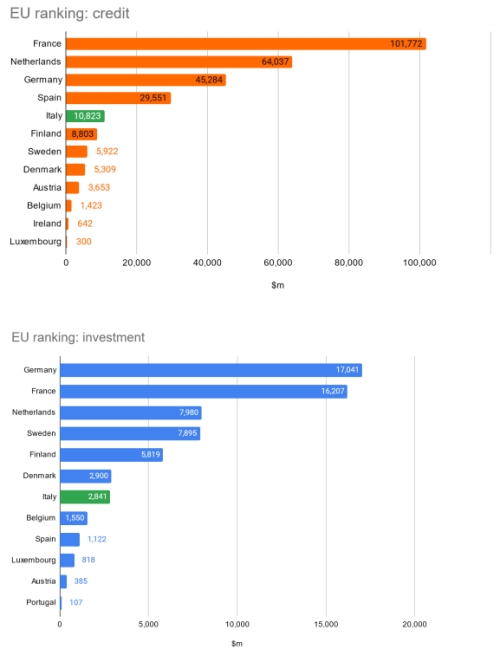Approval of the EU's Nature Restoration Law, which aims to protect biodiversity and restore ecosystems on the continent, remains pending after Hungary overturned the final Council vote at the last minute. Thus, the Nature Restoration Act remains stalled, while a new report shows that the EU itself is contributing to the destruction of planetary ecosystems.

@drpnncp/123rf.com
The interim agreement on the Nature Restoration Act continues to miss the mark. After approval by the European Parliament, it was necessary for the Council to confirm its commitment to this Ensuring the restoration of degraded ecosystems in all European countriesTo contribute to achieving European climate and biodiversity goals and improving food security. But this did not happen.
In fact, Hungary's sudden shift at the last second torpedoed the final vote in the Council on the law. also Italy continued to vote no They were then linked to votes against and abstentions from Sweden, Poland, Finland, the Netherlands, Belgium and Austria, putting the National Reform Party in jeopardy once again.
Read also: Ecosystem restoration: The bill that Italy wanted to stop has been approved in Europe
This legislation, which, according to experts, represents the most important legislation on nature in the EU since the 1990s, effectively sets a target Restore at least 20% of the EU's terrestrial and marine areas by 2030 and all ecosystems by 2050.
And it's not just restoring natural environments such as forests, rivers and marine habitats, says WWF. This concerns mitigating and adapting to the effects of climate change, defending against floods, fires and desertification, and water and air quality. In other words, the safety of all European citizens is also at risk. This is why the deadlock in which the EU Council now finds itself is worrying after failing to reach the qualified majority of Member States needed to adopt the NRL which represents the most important legislative act on nature in the EU since the 1990s. .
The Council's vote, scheduled for Monday, March 25, was supposed to be a mere formality, and instead, with the European elections in June, it risks being forgotten once and for all, at least for this legislature.
How the EU continues to fund the destruction of planetary ecosystems
naturally Restoration law…Since 2015, the year of the Paris Climate Agreement, European banks have done just that Disbursing about 256 billion euros to companies that endanger forests And other natural ecosystems essential to protecting the planet's climate.
This is what appears from a new report.”The European Union finances the destruction of the ecosystempublished today by Greenpeace International, Milieudefensie, Harvest, Global Witness and other NGOs, based on data collected by the independent research organization Profundo.
The study focuses on financial institutions based in Europe that, through loans and investments, finance leading companies in sectors linked to the destruction of ecosystems, such as dairy products, feed or biofuels. The funding went to companies such as JBS, Cargill, Sinar Mas and others with known direct or indirect links to recent cases of deforestation in South America and Southeast Asia.
According to the report, between 2016 And Beginning of 202322.1% of global credit and 9.4% of current global investments in sectors that put the planet's ecosystems at risk can be traced back to EU financial institutions, including Italian ones.
Focus on Italy
In particular, Financial institutions based in Italy Between 2016 and early 2023, it provided €9.9 billion in credits and $2.8 billion (equivalent to €2.6 billion) in investments to major companies operating in sectors with a high impact on ecosystems. This makes the Italian financial sector the fifth largest provider of credit and the seventh largest investor in sectors that threaten ecosystems among EU countries.


@green area
UniCredit stands out as the main Italian financier of companies linked to the destruction of ecosystemsfollowed by Intesa San Paolo.
EU Regulation 1115/2023 to stop the import of products and raw materials linked to deforestation (European Deforestation Regulation, EUDR), adopted in May 2023, represents an important first step in reducing the impact of EU consumption, but current legislation does not. “Think about the financial flows associated with the destruction of ecosystems,” said Martina Borghi, Greenpeace's forestry campaigner in Italy. The review expected by June 2025 represents a critical opportunity to close this gap.
here Full report.
Don't want to miss our news?
Read also:

“Reader. Travel maven. Student. Passionate tv junkie. Internet ninja. Twitter advocate. Web nerd. Bacon buff.”



